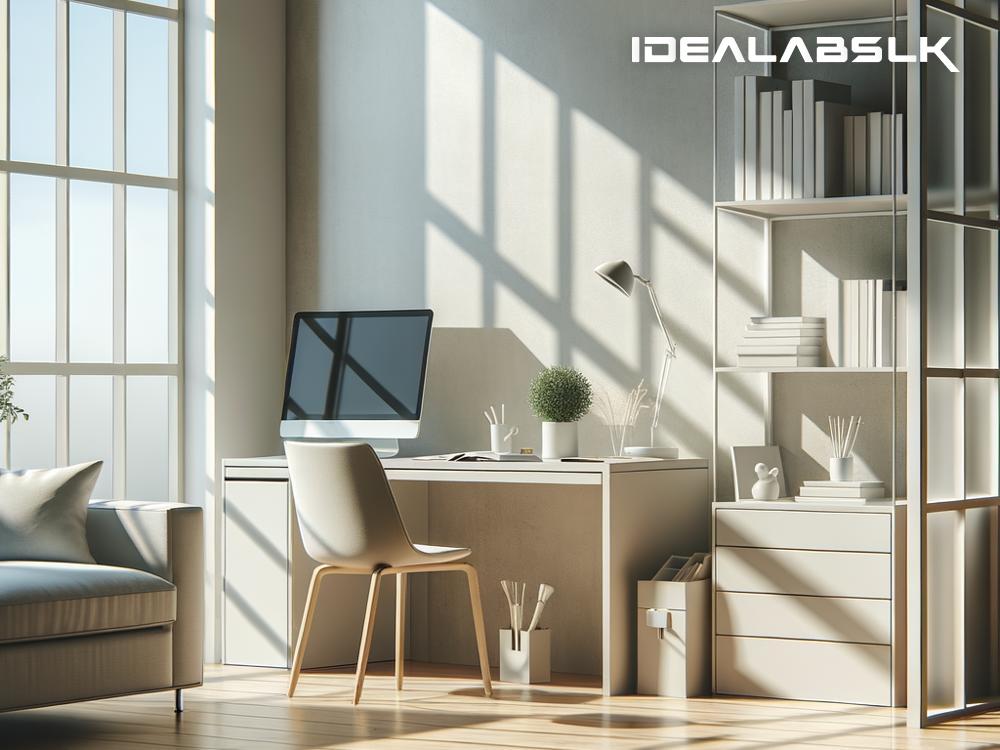Unlocking a Clearer Mind: The Power of Decluttering
In a world where the pace of life is constantly accelerating, finding tranquility and clarity often seems like searching for a needle in a haystack. Yet, there's a surprisingly simple practice that can be a gateway to mental clarity — decluttering. Yes, the action of organizing and removing unnecessary items from our surroundings can profoundly impact our mental well-being. Let's explore how decluttering can be much more than just a cleaning task; it can be a transformative tool for our minds.
A Clutter-Free Space Equals a Clutter-Free Mind
Imagine entering a room filled with scattered items: clothes draped over chairs, stacks of papers teetering on the edge of a desk, miscellaneous objects covering every surface. How do you feel? Overwhelmed, perhaps? That's because external chaos can mirror itself internally, leading to feelings of stress and anxiety. Conversely, a tidy, organized space can promote a sense of calm and order within us. When our eyes rest on a clutter-free environment, our minds receive a subtle message: "All is well, and you can relax."
The Psychology Behind Decluttering
Decluttering involves making decisions — what to keep, what to throw away, and what to donate or sell. This decision-making process boosts our cognitive capabilities because it requires evaluation and problem-solving skills. As we declutter, we're sharpening our minds and fostering a sense of control over our environments. This sense of control is crucial for mental clarity; when we feel in command, our stress levels drop, making room for clearer thinking.
Moreover, the act of decluttering can be incredibly cathartic. Letting go of items we no longer need is symbolic of releasing the past and making space for new opportunities and experiences. This process can lead to emotional release and personal insights, cleansing our mental palette.
Decluttering as a Mindfulness Practice
Decluttering can also be a form of mindfulness meditation. When we sort through our belongings, we're fully engaged in the present moment, examining objects, and reflecting on their purpose in our lives. This focused attention helps to quiet the chatter in our minds, offering a respite from the relentless stream of thoughts and worries that often dominate our consciousness. Over time, regularly decluttering can strengthen our ability to remain present and attentive, enhancing mental clarity.
The Ripple Effects of Decluttering
The benefits of decluttering extend beyond the immediate surroundings to impact other areas of our lives. A decluttered space can boost productivity by removing distractions and improving focus. It's easier to concentrate and complete tasks, whether it's paying bills, studying, or working on a project when our environment is orderly.
Decluttering can also improve our sleep quality. A serene and clutter-free bedroom invites relaxation and signals to our brains that it's time to unwind. Falling asleep and staying asleep becomes easier, and quality sleep is a cornerstone of mental clarity.
Furthermore, decluttering can lead to healthier lifestyle choices. A neat kitchen with visible, accessible healthy food options encourages nutritious eating habits. When we feel good physically, our mental state improves, creating a positive feedback loop that enhances overall well-being.
Getting Started
If you're convinced of the merits of decluttering but unsure where to begin, here are a few simple steps to get you started:
-
Start Small: Choose a specific area to declutter first, such as a drawer or shelf. Completing a small task will give you a sense of accomplishment and motivate you to tackle larger projects.
-
Set Decluttering Goals: Define what you aim to achieve with each decluttering session, whether it's creating more space, reducing stress, or donating items to charity.
-
Make It a Habit: Incorporate decluttering into your routine. Spending just 10-15 minutes a day can make a significant difference over time.
-
Be Mindful of Accumulation: As you declutter, consider your consumption habits to prevent clutter from accumulating again. Ask yourself if new purchases are truly necessary and if they add value to your life.
In conclusion, decluttering isn't just an act of tidying; it's a transformative practice that can significantly impact our mental clarity and overall well-being. By regularly curating our spaces, we're also curating our minds, making room for clarity, peace, and creativity. So, grab that trash bag, and let's clear the clutter to clear our minds!

